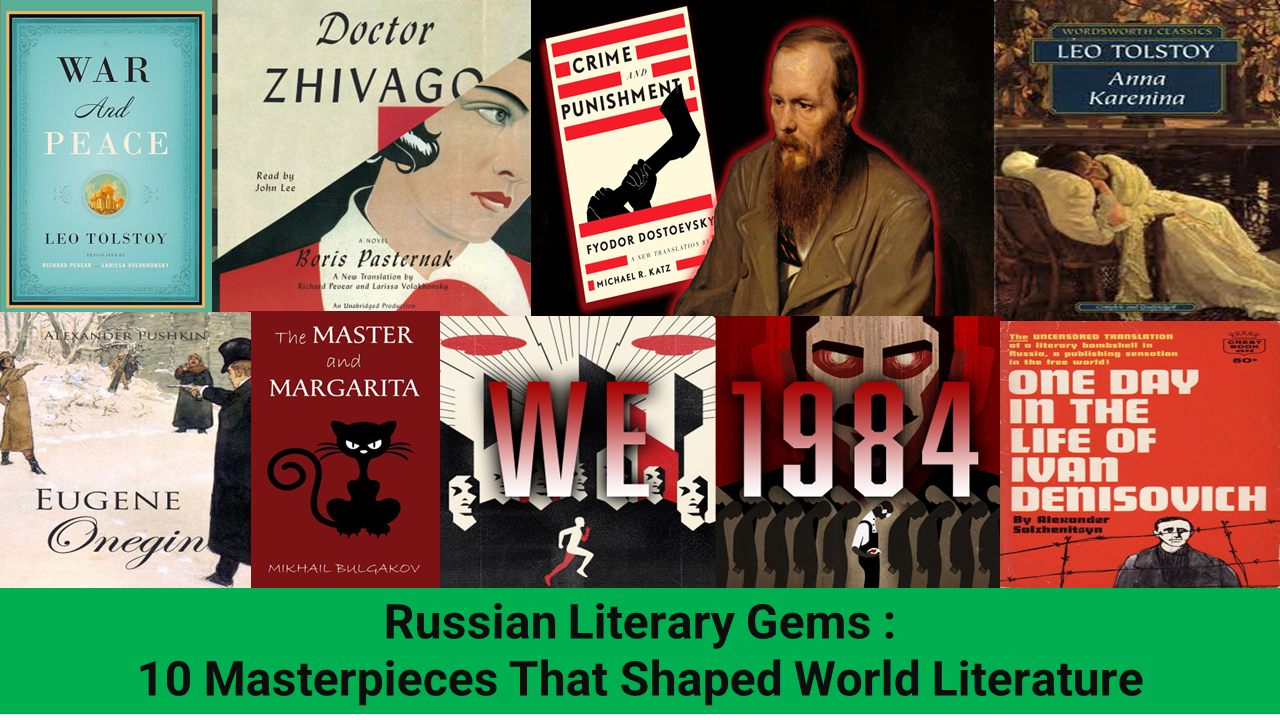Introduction:
Russian literature is a rich and influential tradition known for its depth, complexity, and profound insights into the human condition. From the epic sagas of Tolstoy and Dostoevsky’s exploration of the human psyche to Pushkin’s poetic genius and the satirical brilliance of Bulgakov, Russian literature has produced timeless masterpieces that continue to captivate readers worldwide. It delves into themes like love, morality, societal norms, and the impact of historical events. Through its iconic characters and narratives, Russian literature offers a window into Russian culture and history while transcending borders to shape and enrich global literary thought. Here are 10 famous books by Russian authors that have left an enduring mark on global literature:

1: “War and Peace” by Leo Tolstoy (1869):
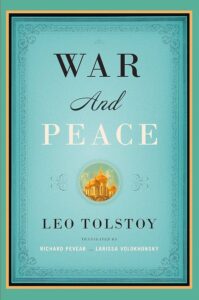

“War and Peace” by Leo Tolstoy (1869) is an epic masterpiece, weaving the tapestry of Russian society during the Napoleonic era. Tolstoy intricately explores the lives of its characters against the backdrop of war, offering profound insights into the human experience. Through the lives of Pierre Bezukhov, Prince Andrei Bolkonsky, and Natasha Rostova, he delves into themes of love, destiny, and historical forces. Tolstoy’s meticulous character development and philosophical depth elevate the novel, making it one of the greatest works of world literature. Its enduring relevance lies in its ability to capture the essence of humanity amidst the chaos of war and peace.
2: “Crime and Punishment” by Fyodor Dostoevsky (1866):
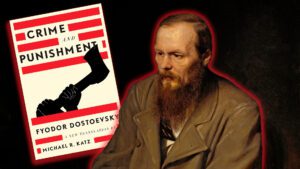

In “Crime and Punishment” (1866) by Fyodor Dostoevsky, the protagonist, Raskolnikov, grapples with a profound moral and psychological crisis. Set in St. Petersburg, the novel explores the consequences of his decision to commit murder and his subsequent inner turmoil. Dostoevsky delves deep into the human psyche, examining themes of guilt, redemption, and the nature of good and evil. As Raskolnikov wrestles with his actions, he undergoes a transformative journey that challenges societal norms and explores the complexities of morality. Dostoevsky’s psychological insight and exploration of existential themes have made “Crime and Punishment” a timeless classic in world literature.
3: “Anna Karenina” by Leo Tolstoy (1877):
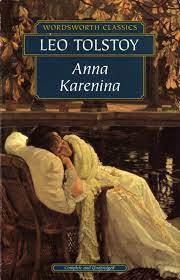

“Anna Karenina” (1877) by Leo Tolstoy is a timeless masterpiece that explores the complexities of love, society, and the human condition. Set in 19th-century Russia, it tells the tragic story of Anna Karenina, a passionate and aristocratic woman trapped in a loveless marriage. As her affair with Count Vronsky unfolds, Tolstoy delves into the moral dilemmas and societal norms of the time. The novel’s intricate portrayal of characters and society, combined with Tolstoy’s philosophical depth, continues to captivate readers. “Anna Karenina” remains a towering achievement in world literature, showcasing Tolstoy’s prowess in depicting the human soul’s triumphs and tragedies.
4: “The Brothers Karamazov” by Fyodor Dostoevsky (1880):
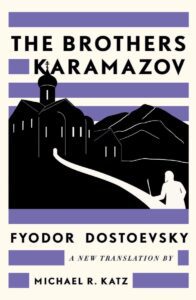

In Fyodor Dostoevsky’s “The Brothers Karamazov” (1880), a masterpiece of Russian literature, the complex relationships and philosophical debates among the Karamazov brothers serve as a canvas for exploring profound themes. It delves into morality, faith, and the nature of evil through the contrasting characters of Dmitry, Ivan, and Alexei. The novel’s core question revolves around the existence of God and the consequences of a world without divine guidance. Dostoevsky’s exploration of these profound existential dilemmas, interwoven with intricate character development, makes “The Brothers Karamazov” an enduring work that continues to provoke deep reflection and discussion among readers.
5: “Doctor Zhivago” by Boris Pasternak (1957):
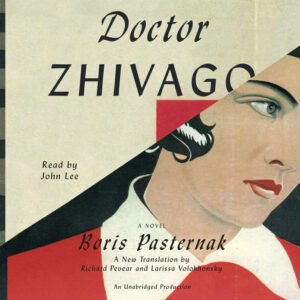

Boris Pasternak’s “Doctor Zhivago” (1957) unfolds against the backdrop of the Russian Revolution and its tumultuous aftermath. The novel follows the life and love of Yuri Zhivago, a physician and poet, as he navigates the chaos of war and revolution. Pasternak’s lyrical prose captures the beauty and tragedy of the era while portraying the personal struggles of its characters. The novel’s courage in addressing themes of art, love, and individualism in the face of social upheaval led to its initial ban in the Soviet Union. Despite political controversy, “Doctor Zhivago” remains a testament to the enduring power of literature to illuminate the human spirit.
6: “One Day in the Life of Ivan Denisovich” by Aleksandr Solzhenitsyn (1962):
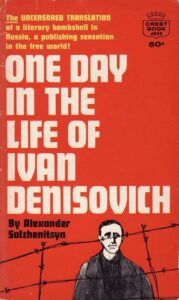

Aleksandr Solzhenitsyn’s “One Day in the Life of Ivan Denisovich” (1962) provides an unflinching portrayal of life in a Soviet labor camp during the Stalinist era. The novella follows Ivan Denisovich Shukhov through a single day of his grueling existence, highlighting the harsh conditions, arbitrary cruelty, and the indomitable spirit of the prisoners. Solzhenitsyn’s powerful narrative condemns the oppressive regime while celebrating the resilience of the human spirit. Written with stark realism, it exposed the brutality of the Soviet Gulag system and became a symbol of resistance against totalitarianism. This work remains a seminal piece in world literature, a testament to the enduring quest for human dignity amidst adversity.
7: “The Master and Margarita” by Mikhail Bulgakov (1967):


Mikhail Bulgakov’s “The Master and Margarita” (1967) is a literary tour de force that intertwines fantasy, social commentary, and political allegory. Set in Moscow, the novel revolves around the Devil’s visit and the ensuing chaos. Its surreal narrative explores themes of good and evil, artistic freedom, and totalitarianism. Bulgakov’s satirical brilliance and inventive storytelling make the novel an enigmatic masterpiece. Suppressed during his lifetime, it emerged as a posthumous classic, captivating readers with its whimsical yet thought-provoking narrative. “The Master and Margarita” remains a testament to the enduring power of literature to critique society and engage with complex philosophical questions.
8: “Eugene Onegin” by Alexander Pushkin (1833):
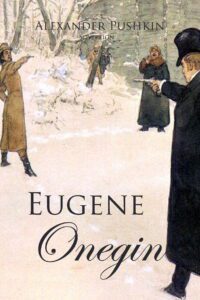

Alexander Pushkin’s “Eugene Onegin” (1833) is a quintessential Russian novel in verse, a poetic masterpiece that delves into the life of the eponymous protagonist through lyrical poetry. This innovative work employs the Onegin stanza, influencing poets worldwide. It narrates the story of Eugene Onegin, a cynical and jaded aristocrat, and his interactions with the innocent Tatyana Larina and the fiery poet Vladimir Lensky. Pushkin’s narrative explores themes of love, society, and the consequences of one’s choices. “Eugene Onegin” showcases Pushkin’s brilliance, establishing him as one of Russia’s greatest poets, and the work’s universal themes continue to resonate with readers across cultures.
9: “Fathers and Sons” by Ivan Turgenev (1862):
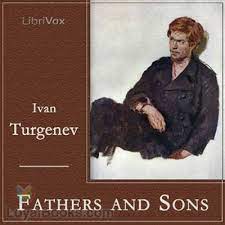

Ivan Turgenev’s “Fathers and Sons” (1862) is a seminal novel that delves into generational conflict and the clash between traditional and progressive ideologies in 19th-century Russia. The novel introduces the term “nihilism” into the literary lexicon through the character of Bazarov, a charismatic and radical young intellectual. As Bazarov and his friend Arkady return to their rural homes, they challenge established norms, provoking tension with the older generation. Turgenev’s exploration of these ideological clashes, set against a backdrop of love and family, makes “Fathers and Sons” a timeless work that examines the evolving landscape of Russian society and the enduring struggle between generations.
10: “We” by Yevgeny Zamyatin (1924):
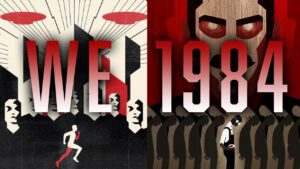

Yevgeny Zamyatin’s “We” (1924) is a pioneering work in the dystopian genre, envisioning a highly controlled, dehumanizing future society known as the One State. The novel follows the life of D-503, an engineer who begins to question the regimented, emotionless existence imposed by the Benefactor. Zamyatin’s exploration of surveillance, conformity, and the suppression of individuality predated and influenced iconic dystopian works by authors like George Orwell and Aldous Huxley. Despite its initial suppression in the Soviet Union, “We” stands as a powerful critique of totalitarianism and a testament to the enduring impact of dystopian literature on our understanding of human nature and authoritarian regimes.
These Russian literary masterpieces have transcended cultural and linguistic boundaries, influencing generations of writers and continuing to shape the trends of world literature with their profound themes, complex characters, and innovative narrative techniques.

